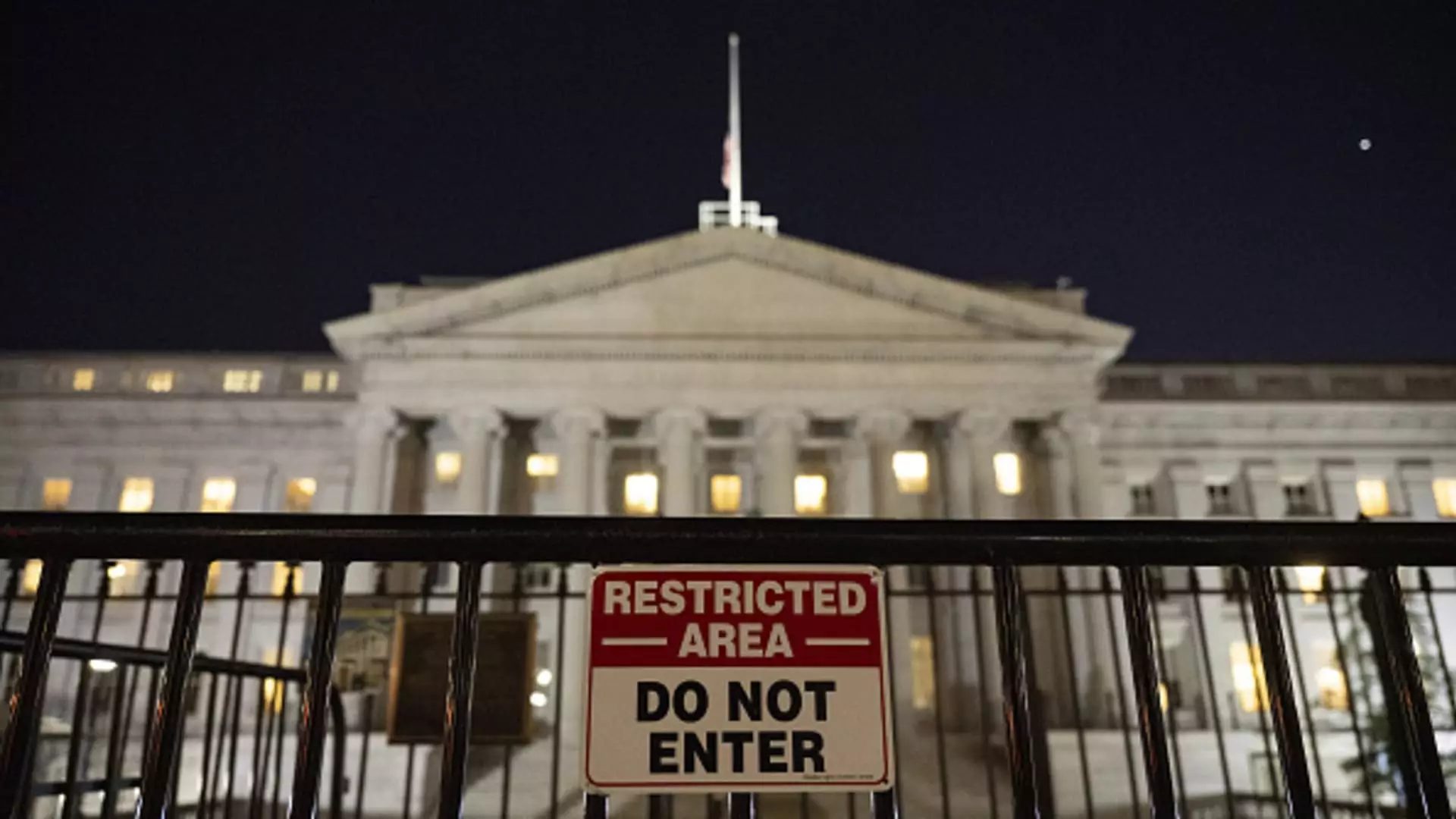In a rapidly evolving landscape marked by digital interconnectedness, cyber warfare has emerged as a significant concern for national security. Recent reports indicate that hackers, believed to be associated with the Chinese government, infiltrated the U.S. Treasury’s Office of Foreign Assets Control (OFAC) and the Office of Financial Research. The breach raises pressing questions about national security, international relations, and the geopolitical dynamics between the United States and China.
The Breach and Its Implications
The Washington Post’s disclosure of this security breach underscores the vulnerability of government institutions to external threats. Notably, this incident involved the unauthorized access to unclassified documents, which complicates the U.S. government’s attempts to enforce its economic sanctions—a cornerstone of its foreign policy. The mention of a potential targeting of Treasury Secretary Janet Yellen’s office amplifies concerns regarding the confidentiality and integrity of crucial policy discussions, making this breach particularly alarming.
Moreover, these breaches highlight a sophisticated knowledge of U.S. policy-making. The hackers reportedly focused on identifying Chinese entities that the U.S. might designate for sanctions. This level of targeting suggests a strategic approach by the intruders, aiming to gather intelligence that could inform China’s responses to U.S. sanctions, thereby revealing the spy-versus-spy nature of contemporary cybersecurity threats.
The immediate response from the Chinese government to these allegations has been one of vehement denial, branding U.S. claims as “irrational” and lacking factual basis. This kind of rhetoric is common in diplomatic exchanges where accusations of cyber espionage are involved. The defensive posture taken by Chinese officials suggests that such accusations could exacerbate existing tensions between the nations.
China has reiterated its commitment to combating cyberattacks, yet the pronounced decline in trust between these global powers raises significant questions about international cooperation in cybersecurity. A collaborative approach might be essential to establish norms and protocols to mitigate the risks and consequences of cyber warfare; however, actions like these breaches threaten to erode any possibility of constructive dialogues.
This incident does not occur in a vacuum; it is part of a broader narrative of escalating tensions between the United States and China. The U.S. views China as its primary geopolitical rival, categorizing it as the biggest foreign policy challenge. With the unveiling of economic sanctions aimed at Chinese banks and entities in response to various geopolitical conflicts—most notably the war in Ukraine—the dynamic becomes increasingly delicate.
The implications of these cyber breaches extend beyond mere theft of information. They signal a potential shift in how nations engage with one another in a digital context. As the landscape of international relations evolves, countries must grapple with the blurred lines between espionage, cyber defense, and digital diplomacy, prompting a re-evaluation of their cybersecurity frameworks to safeguard sensitive information against hostile state-sponsored threats.
Ultimately, the recent breach at the U.S. Treasury highlights an urgent need for enhanced cybersecurity measures across government agencies, particularly those involved in national security and foreign policy. As state-sponsored cyberattacks become increasingly sophisticated, nations must prioritize building resilient defenses while fostering international dialogue to address the digital risks that come with globalization. Balancing security needs with diplomatic engagement will be critical in navigating the complex web of modern international relations.


Leave a Reply